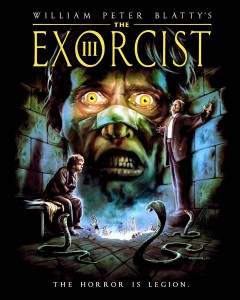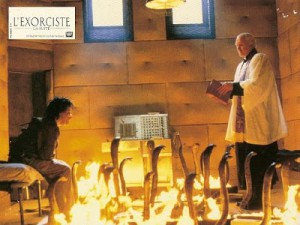The Exorcist III
From the Chicago Reader (August 1, 1990). — J.R.
An official sequel to the original story — that is, a movie that begins where The Exorcist, rather than Exorcist II: The Heretic, left off. William Peter Blatty, author of the original novel and its screen adaptation, wrote and directed this 1990 feature, adapting his own novel Legion, and while he apparently lacks the means to make this work at the level of its predecessor — there’s too much mumbo jumbo in the dialogue and not enough continuity in the story — his decision to hold back on visible gore and depend mainly on camera and actors (especially Brad Dourif as a mental patient possessed by Satan) to suggest the full range of his horrors frequently pays off. And even when it doesn’t work, the film is never boring. The cast also includes George C. Scott, Ed Flanders (particularly good as a likable priest), Jason Miller, Scott Wilson, Nicol Williamson, Nancy Fish, Lee Richardson, Viveca Lindfors, Zohra Lampert, and Barbara Baxley; Gerry Fisher is the cinematographer. (JR)


